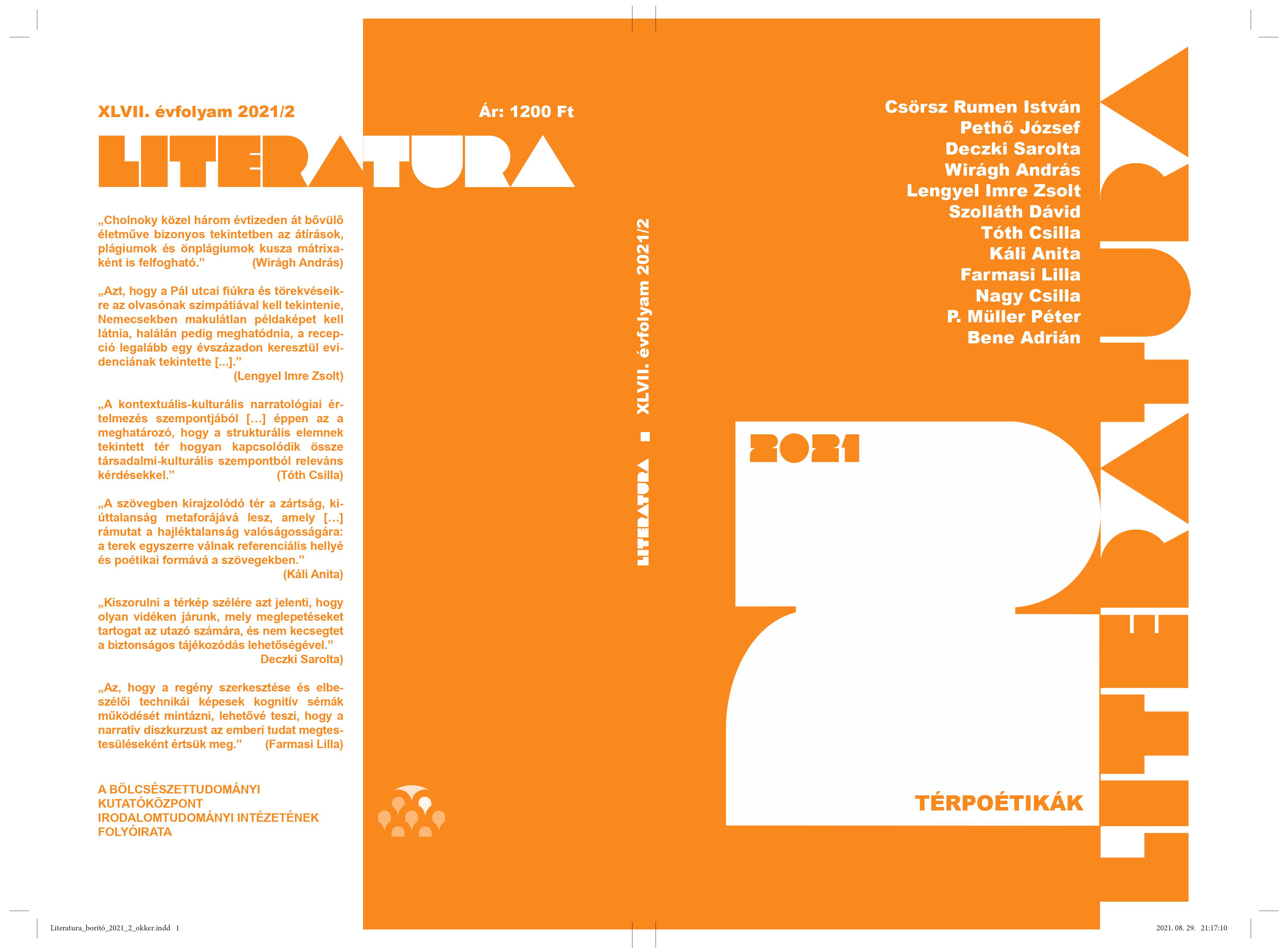Tér, szereplők és identitás Molnár Ferenc A Pál utcai fiúk című regényében
Kontextuális-kulturális narratológiai közelítés
Absztrakt
Space, Characters and Identity in the Novel The Paul Street Boys by Ferenc Molnár
A Contextual-Cultural Narratological Approach
The paper examines a popular item on compulsory reading lists, a novel that is an important element of Hungarian national identity in terms of space and the characters closely associated with it, using the methods of contextual-cultural narratology. Because of its connection with the characters, space, which is usually considered part of the story world, is more related to content, social and ideological issues, and therefore remains outside the scope of narratological studies. However, what is decisive for the contextual-cultural narratological analysis is precisely how space as a structural element is linked to socio-culturally relevant issues, how the work is able to produce its political socialisation effect. This requires a joint analysis of the formal elements and the context in which the novel was conceived. A striking formal element of the work is the parallel between the space of the novel and the identity of the characters, since both narrative devices are characterised by the fact that they are empty in the world of the story in terms of social status. The detailed study of the different aspects of space is linked to the method of contextualisation, which is organised around the concepts of urban history and the history of mentality: the social use of space, the mental map and urban discourse. Also, the paper briefly refers the role of the implied author and, in relation to the actual readers, to the function of the book in education.



